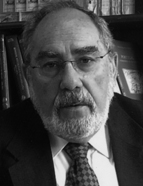

In 1973, after a very brief period as a secondary school teacher and methodologist, Romero Magalhães began his career at FEUC. In 1984, he completed his PhD there. The thesis he presented to FEUC, O Algarve Económico, 1600-1773 (The Economic Algarve, 1600-1773), supervised by Vitorino Magalhães Godinho, quickly became a landmark work in Portuguese historiography. It was published by Editorial Estampa in 1988 and has since been reprinted several times.
In 1993, Romero Magalhães took his aggregation exams at FEUC. To this end, he presented a high-quality and bold pedagogical report on a master’s degree course in European History, an academic interest he had begun to cultivate intensively when Portugal joined the European Economic Community in 1986. He became a full professor in 1994 and retired in 2012.
In Portugal, the institutionalisation of economic history was a slow and belated movement that benefited greatly from the work of historians such as Joaquim Romero Magalhães. Not only in research, but also in teaching. Due to the longevity of the Salazar regime and government restrictions on the social sciences, economic history emerged as a trickle and gradually established itself apart from other realities. Due to the ideological suffocation of the university and the stigma attached to the Marxist connotations of the terms ‘economic’ and ‘social’, research and teaching of history in general only progressed within a historiographical counterculture, which resisted and grew on the margins of academia (J. Romero de Magalhães, Oração de Sapiência ..., 2009, pp. 1-16).
In 1972, decades behind several developed countries, the first course in economic history in Portugal was launched in Lisbon, as part of the Economics degree at the Instituto Superior de Economia (now ISEG), entrusted to the historian Joel Serrão. The following year, the newly created FEUC began teaching Economic History, entrusted to Joaquim Romero Magalhães. The same happened in 1972 at the new Instituto Superior de Ciências do Trabalho e da Empresa (Higher Institute of Labour and Business Sciences), where the teaching of Economic History was taken over by economist Alfredo de Sousa.
This work is financed by national funds through FCT - Foundation for Science and Technology, I.P, in the scope of the projects UIDB/04311/2020 and UIDP/04311/2020.
